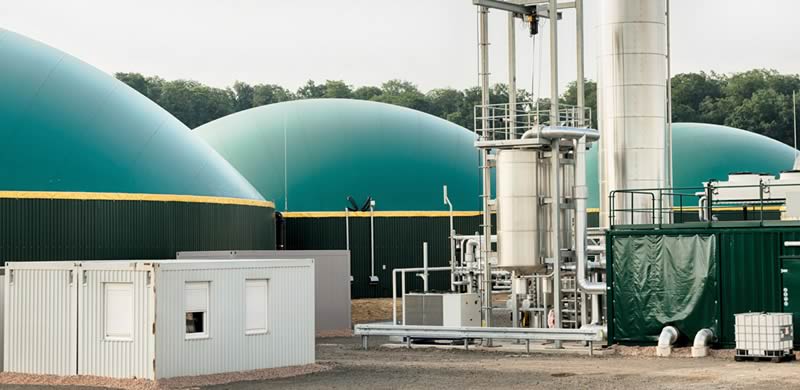
As Ireland accelerates its transition to a low-carbon economy, the Government has introduced the Renewable Heat Obligation (RHO)—a landmark policy aimed at decarbonising the country’s heat sector. Under the scheme, fossil fuel suppliers will be required to incorporate increasing proportions of renewable heat, particularly sustainably sourced biomethane, into their energy mix.
This obligation will be phased in under the governance of the National Oil Reserves Agency (NORA), aligning with Ireland’s Climate Action Plan 2024 and EU Renewable Energy Directive III (RED III) standards. To support stakeholders in meeting these new regulatory requirements, Envirosense® is pleased to offer tailored RHO Sustainability Audits, underpinned by over a decade of third-party bioenergy assurance experience.
What is the Renewable Heat Obligation?
The RHO is a market-based mechanism designed to stimulate demand for renewable heat by creating a compliance obligation on suppliers of fossil heating fuels—similar in design to Ireland’s Biofuels Obligation Scheme (BOS) for transport fuels. It will apply to the supply of kerosene, gas oil, LPG, natural gas, and potentially other fossil heating fuels.
Announced as part of the Climate Action Plan and supported by extensive public consultation in 2023, the scheme is intended to create a stable demand signal for renewable gases, with biomethane—renewable methane produced from anaerobic digestion (AD) of organic material—playing a central role. The scheme’s objective is to reduce emissions in Ireland’s hard-to-decarbonise heat sector, responsible for approximately 13% of national greenhouse gas (GHG) emissions.
Potential Impacts of the RHO
While the main objective of the RHO is to aid the decarbonisation of Ireland’s heating sector, there will be other positive impacts of the scheme. Currently, Ireland imports 70% of its energy – implementation of the RHO will reduce this dependency and improve Ireland’s energy security. The RHO encourages fuel suppliers to source biomethane from local Irish producers, often in rural areas, creating economic opportunities and supporting rural communities.
Strict Sustainability Standards for Biomethane
To qualify under the RHO, renewable fuels such as biomethane must meet robust sustainability and greenhouse gas reduction criteria. These criteria are drawn from EU RED III legislation and adapted for the Irish market. Envirosense® has identified two main pillars of compliance:
1. GHG Emissions Performance
Biomethane must deliver significant lifecycle GHG savings compared to fossil fuels. This includes emissions from feedstock cultivation, transportation, anaerobic digestion, upgrading, and end-use. The RHO is expected to adopt minimum GHG saving thresholds in line with RED III—at least 70% reduction for new plants—similar to those in the UK’s Green Gas Support Scheme (GGSS) and Renewable Heat Incentive (RHI).
2. Land Use Sustainability
Feedstock sourcing must adhere to strict land-use rules, prohibiting materials grown on land converted from forest, wetlands, or high-biodiversity grasslands since 2008. Feedstocks such as animal slurry, food waste, and distillery residues are deemed compliant by default, provided traceability is maintained.
These measures are designed to ensure that biomethane under the RHO contributes meaningfully to Ireland’s climate targets without causing indirect environmental harm.
Envirosense®: Bringing ISAE 3000 Assurance to Irish Biomethane Producers
With the RHO’s compliance framework expected to mirror EU and UK bioenergy assurance schemes, independent third-party auditing will be essential. Envirosense® has extensive experience verifying renewable fuel sustainability under schemes such as the UK RHI, RO, GGSS, and the RTFO, and is now bringing that expertise to the Irish heat market.
What’s Next for the RHO?
While full details of the RHO’s launch and reporting mechanics are still being finalised by the Department of the Environment, Climate and Communications (DECC) and NORA, early action is encouraged. Biomethane producers and fuel suppliers can already begin preparing by:
- Ensuring GHG emissions calculations follow RED III methodology
- Collecting land use and sustainability data for feedstocks
- Engaging with a third-party verifier to audit supply chain documentation
The first compliance year is expected to commence in 2025/26, with obligations increasing gradually over time to reflect Ireland’s 2030 climate goals.
Ready for RHO Compliance? Talk to Envirosense®
At Envirosense®, we’re ready to help you meet the sustainability and assurance requirements of the Renewable Heat Obligation. Whether you’re a biomethane producer looking to qualify your fuel or a heat supplier preparing for your first audit, our specialist team can guide you through every step. Contact us today to ensure your RHO audit is completed efficiently, accurately, and with the credibility regulators expect.
Click here for more information about how we can help with your RHO requirements.
For immediate questions please contact Jack.Boyle@envirosenselimited.co.uk


